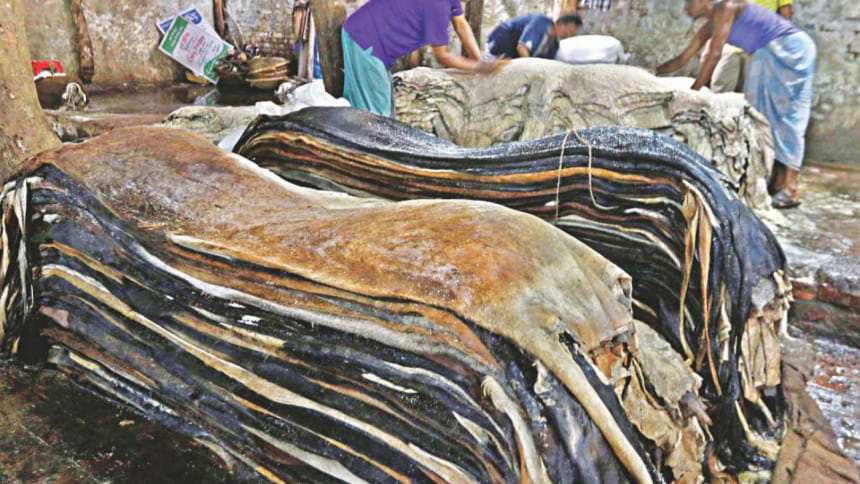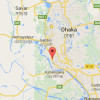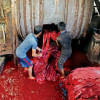Actions farcical

Rawhides are piling up at Posta in the capital's Lalbagh and the traders are left in the lurch, thanks to the government move to prevent raw hides from reaching the tanneries in Hazaribagh.
With the March 31 deadline for the tanners to relocate to the Savar Tannery Industrial Estate over, police were deployed from Friday to bar supply of hides to the tanning factories.
Though the government itself has failed to complete the infrastructural development at the Savar site within the deadline, it is the rawhide traders who are becoming the worst victims of the restriction, traders allege.
"We have not been able to sell rawhides to tanneries since March 31," said Delwar Hossain, president of Bangladesh Hide & Skin Merchants' Association.
"We have not breached any deadline, nor have we polluted the environment. But we have become the victim."
Some 60,000-70,000 animals are slaughtered across the country every day and, according to Delwar, more than 70 percent of the hides are brought to Posta by wholesalers who then sell those to the tanneries.
Now that the tanners have stopped buying hides due to the police restriction, the traders fear the worst.
"The rawhides that have already made their way to Posta cannot be preserved for more than two months. So, if we cannot do business in the next two months, we will simply have to fold our businesses," Delwar told The Daily Star yesterday.
The Hazaribagh tanneries release thousands of litres of untreated and toxic liquid waste into the rivers around the capital every day, posing a serious risk to human and animal health, and diminishing the prospects of leather exports.
Of the 60 percent of the industrial waste drained into the rivers, 40 percent comes from the tanneries, according to official estimates.
Considering the health and environmental hazards, the government in 2003 took up a project to relocate the tanneries to Savar.
Thirteen years on, the government has not yet been able to complete installation of the Central Effluent Treatment Plant at the site. The machines for pumping toxic wastewater are yet to be installed.
Nevertheless, police have been deployed at the four entry points to Hazaribagh to prevent rawhide supply to the tanneries.
While the factories are still running on the raw materials stockpiled beforehand, the hide merchants were being affected the most, said Md Mizanur Rahman, treasurer of Bangladesh Tanners' Association (BTA).
Mizanur, also executive director of Samota Leather Complex Ltd, said the 150 tanneries that got plots at the Savar estate had already invested Tk 800-1,000 crore to move their factories there.
"We are determined to go there. But we have to be given more time," he said, adding that 40-50 tanneries would be ready to start operation in Savar by June.
BTA President Shaheen Ahmed said most Hazaribagh tanners would relocate to Savar by the yearend.
Furthermore, if the hides piled up in Posta are not sold soon, these may cause public nuisance and health hazards.
"The retailers and wholesalers will not be able to preserve the rawhides for long. The skins will rot away," said Mohammad Aziz, a trader in Posta.
Given the situation, the government now, say the traders, should either lift the restrictions or allow them to export rawhides to save their businesses.
Industries Minister Amir Hossain Amu could not be reached for comments while his public relations officer declined to comment on the issue.
However, after a programme in Dhaka yesterday, the minister again said rawhides would not be allowed to enter Hazaribagh.

 For all latest news, follow The Daily Star's Google News channel.
For all latest news, follow The Daily Star's Google News channel. 








Comments